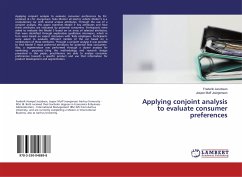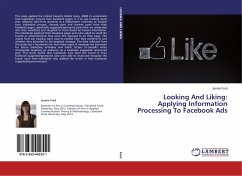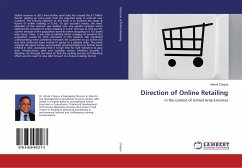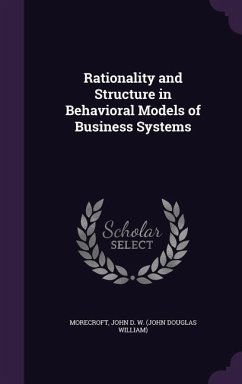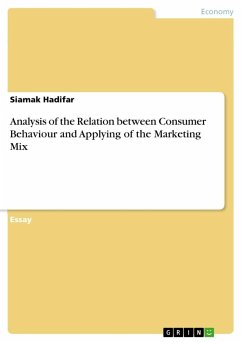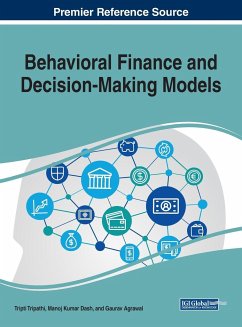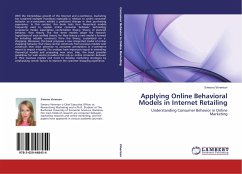
Applying Online Behavioral Models in Internet Retailing
Understanding Consumer Behavior in Online Marketing
Versandkostenfrei!
Versandfertig in 6-10 Tagen
30,99 €
inkl. MwSt.

PAYBACK Punkte
15 °P sammeln!
With the tremendous growth of the Internet and e-commerce, marketing has sustained multiple evoultions especially in relation to online consumer behavior as e-consumers exhibit a profound change in their purchasing experience. In this context, this book tests four theoretical models frequently used to explain online consumer behavior: technology acceptance model, expectation confirmation theory, theory of planned behavior, flow theory. The first three models adapt the research hypotheses of each verified theory. For flow theory a new model is formed by including notable constructs from this th...
With the tremendous growth of the Internet and e-commerce, marketing has sustained multiple evoultions especially in relation to online consumer behavior as e-consumers exhibit a profound change in their purchasing experience. In this context, this book tests four theoretical models frequently used to explain online consumer behavior: technology acceptance model, expectation confirmation theory, theory of planned behavior, flow theory. The first three models adapt the research hypotheses of each verified theory. For flow theory a new model is formed by including notable constructs from this theory, customized on e-shopping. Moreover, this book proposes a new integrated model of online shopping behavior that mixes central constructs from previous models with constructs that draw attention to consumer perceptions in e-commerce meant to impact e-loyalty. The analyses have important inputs in extending theoretical models and proposing new ones. Also, the book provides guidelines for web service providers that rely on online consumer behavior in their business models and need to develop marketing strategies by emphasizing certain factors to improve the customer shopping experience.



